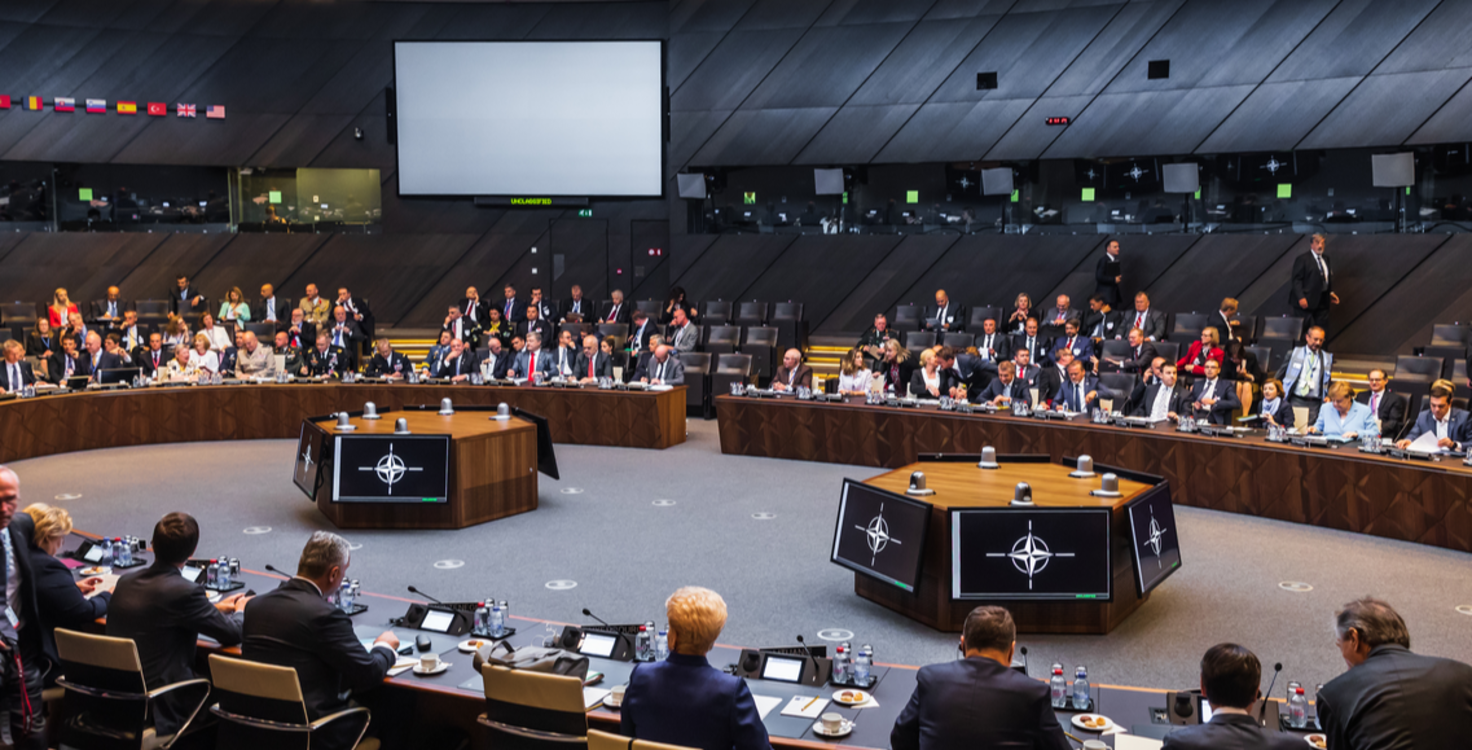Ahead of today’s Agriculture and Fisheries Council meeting, a new alliance argues that the European Commission’s proposed reforms to the Common Agricultural Policy (CAP) must be more ambitious and align with the EU’s net-zero commitment.
€2 trillion investor group includes Legal & General Investment Management, Brunel Pension Partnership, Robeco and BMO Global Asset Management. Investor network FAIRR also supports.
Alliance backs four recommendations, including a proposal to reduce direct support for high-emitting commodities such as beef and dairy, and supporting affected farmers to transition.
An alliance of investors, policy experts and business groups is calling upon the European Commission today to ensure its reforms of the Common Agricultural Policy (CAP) will enable it to meet its net–zero greenhouse gas emissions commitment by 2050.
The group argues that current proposals to reform CAP do not go far enough, and risk undermining the EU’s own net-zero commitment. The Alliance says it wants to ensure that the reformed CAP goes further in its steps to prioritise climate and biodiversity protection.
In a paper published today, four recommendations are made including a proposal to reduce direct support for high-emitting commodities such as red meat. The recommendations are:
Encourage the use of enforceable performance-based conditions that link support to member states and farmers commensurate with the cost of delivering public good or environmental services.
Shift incentives that prioritise yields at the expense of the climate and environment and balance this with new monetary incentives that put a value on sustainable agriculture.
Decouple support from production metrics for single commodity transfers with high associated greenhouse gas emissions (e.g. beef and dairy); and
Apply the Just Transition Mechanism to support farmers social and economic wellbeing impacted by CAP reforms.
The European agriculture sector accounts for around 10% of EU emissions, and CAP reform is to be discussed at the EU Agriculture and Fisheries Council today. The Alliance says it believes the recommendations would be broadly supported by both markets and regulators.
Today’s paper is authored by LGIM and experts at Chatham House and supported by an alliance of investors and organisations, including Aldersgate Group, Aviva Investors, Robeco, Brunel Pension Partnership, BMO Global Asset Management, Storebrand Asset Management, the international business of Federated Hermes, Asia Research & Engagement and the FAIRR initiative, which has said it supports the aims of these recommendations and will be launching a broader consultation with its $30 trillion investor network to develop key areas of engagement. The Institutional Investors Group on Climate Change (IIGCC) has also been key in supporting the alliance.
Alexander Burr, ESG Policy Lead at Legal & General Investment Management said:
“We are all becoming increasingly alert to the size and scale of risk that climate change poses to sustainable economic growth. As long-term investors, and stewards of our clients’ assets, we engage with businesses across the food and agriculture sector to help them transition towards a net-zero economy. However, to truly effect change we seek stronger action from policymakers. Working with this alliance, we at LGIM, view the reform of the EU CAP as an opportunity for the EC to once again be bold and ambitious; and, we should demonstrate to the world how agricultural subsidies can support – and not undermine – the transition.”
Tim Benton, Director, Energy, Environment and Resources Programme, Chatham House, said:
‘The EU is taking steps to align the land-use sector with the Paris Agreement through the Green Deal and the updated Bioeconomy Strategy. By encouraging climate to be at the heart of its subsidy packages, alongside food security, farmer wellbeing and dietary health, the Common Agricultural Policy could work in tandem with these other strategies if ambitiously applied. The EU can support a land-based economy that works for people and planet and create a system that prioritises not just output but food quality.’
Helena Wright, Policy Director, FAIRR Initiative, said:
“Governments have committed under Article 2.1c of the Paris Agreement to make finance flows consistent with a pathway towards low greenhouse gas emissions, and there is no way to achieve that without transformation of the animal agriculture sector. Current EU agricultural subsidies are not aligned with climate or biodiversity objectives. Investors recognise that CAP reform is critical for the agriculture and food sector itself which faces hugely increased costs of water, feed, and infrastructure damage due to more extreme weather events.”
Nick Molho, Executive Director at the Aldersgate Group, said:
“The Common Agricultural Policy could be used as a powerful tool to drive a thriving European agricultural sector, whilst also delivering significant environmental improvements. Business and investors are today coming together to call for an ambitious programme that will not only support sustainable food production but also promote public goods such as nature restoration, biodiversity net gain and a reduction in greenhouse gas emissions. The EU’s commitment to climate neutrality by 2050, its ambitious commitments on biodiversity restoration by 2030 and the overall ambition of the European Green Deal all provide a unique – and long-awaited – opportunity to align agricultural and land use policy with the EU’s climate and environmental goals.”
Faith Ward, Chief Responsible Investment Officer, Brunel Pension Partnership, said:
“For the EU to meet its own climate targets and move in line with the Paris Agreement targets, it urgently needs to reform the Common Agricultural Policy, agreeing stronger enforcement measures, removing misaligned incentives and ending support for high-emission commodities. I support the recommendations of this letter to bring meaningful reform to the CAP based on our shared climate goals”
Peter van der Werf, Senior Engagement Specialist, Robeco, said:
“Robeco has been engaging with large-scale agricultural producers for many years in our program to improve sustainability in the meat and fish supply chain. We can’t solve these issues alone, and some of the main barriers for further improvements in sustainability have to be resolved by policymakers. We have started engaging with the Brazilian government to ensure environmental protection is enforced. At the same time, it’s equally important is to achieve subsidy reform of the Common Agricultural Policy (CAP) in Europe to ensure that any subsidies provide the right incentives for farmers to align with the Paris Agreement_. Ultimately the CAP should achieve a circular business model for farmers that provides a sound economic basis for their farming operation.”
Nina Roth, Director, Responsible Investment, BMO Global Asset Management, said:
“BMO Global Asset Management is engaging companies along the food and agriculture value chain, including its financiers, on improving sustainable practices to combat climate change and biodiversity loss. Strong incentives in the CAP are vital for transforming the industry”
Ben McCarron, Managing Director, Asia Research & Engagement, said:
“We support these recommendations as a stronger approach to environmental management in the agricultural sector is needed to meet global targets for climate and create a stronger food industry. There needs to be stronger incentives to improve the way land is treated, not to degrade it.”
Today’s paper entitled, ‘How can Europe reap the environmental rewards from subsidy reform and align with the Paris Agreement’ argues that while the decarbonisation of the European energy system is taking hold, emissions in the agriculture sector have plateaued. Agricultural subsidies constitute a third of the EU total budget and are pivotal in determining how land across Europe is utilised and which commodities are produced. Reforming the CAP will therefore be essential for climate mitigation, negative emissions and long-term environmental resilience in terms of climate adaptation, biodiversity improvements and food security.
With the Portuguese Presidency keen to finalise the embedding of sustainability into the updated CAP in April, the group has called on the EU to implement its recommendations to unlock the potential for private finance to support the decarbonisation of agricultural and land-use practices and have a transformative impact on the sector.
Separately, FAIRR also launched a policy white paper today on how investors in the land-use sector can manage challenges and opportunities in aligning their finance flows with a pathway to achieving the Paris Agreement, including reform of agricultural subsidies.
Notes to editor
For more information or to request an interview please contact;
Sophie Grant, ESG Communications
T: +44 7817 371323 | sophie@esgcomms.com
The papers can be found on the following links:
Full list of supporters (AUM): Aldersgate Group, LGIM (€1.3 trillion), Brunel Pension Partnership (€33 billion), Robeco (€176 billion), BMO Global Asset Management (€235 billion), the international business of Federated Hermes (€40 billion), Storebrand Asset Management (€92 billion), Aviva Investors (€408 billion), Asia Research & Engagement, FAIRR Initiative.
About LGIM
Legal & General Investment Management is one of Europe’s largest asset managers and a major global investor, with total assets under management of €1.3 trillion. We work with a wide range of global clients, including pension schemes, sovereign wealth funds, fund distributors and retail investors. Throughout the past 40 years, we have built our business through understanding what matters most to our clients and transforming this insight into valuable, accessible investment products and solutions. We provide investment expertise across the full spectrum of asset classes including fixed income, equities, commercial property and cash. Our capabilities range from index-tracking and active strategies to liquidity management and liability-based risk management solutions.
About Chatham House
Founded in 1920, Chatham House is a world-leading, independent policy institute based in London. Our mission is to help governments and societies build a sustainably secure, prosperous and just world. We engage governments, the private sector, civil society and our members in open debate and private discussions about the most significant developments in international affairs. Our research and policy ideas involve rigorous analysis of critical global, regional and country-specific challenges and opportunities. We do not take institutional positions on policy issues.
About Aldersgate Group
The Aldersgate Group is an alliance of leaders from business, politics and civil society that drives action for a sustainable economy. Our members include some of the largest businesses in the EU with a collective global turnover of around €600bn, leading NGOs, professional institutes, public sector bodies, trade associations and politicians from across the political spectrum. Our mission is to trigger the change in policy required to address environmental challenges effectively and secure economic benefits for the EU and the UK in doing so.
About FAIRR
The FAIRR Initiative is a collaborative investor network, established by the Jeremy Coller Foundation. Its mission is to build a global network of investors who are focused and engaged on the risks linked to intensive animal production within the broader food system. FAIRR helps investors to exercise their influence as responsible stewards of capital to engage and safeguard the long-term value of their investment portfolios. This is the third year of the Coller FAIRR Protein Producer Index which was shortlisted by the UN-supported PRI as ESG Research Report of the Year.











